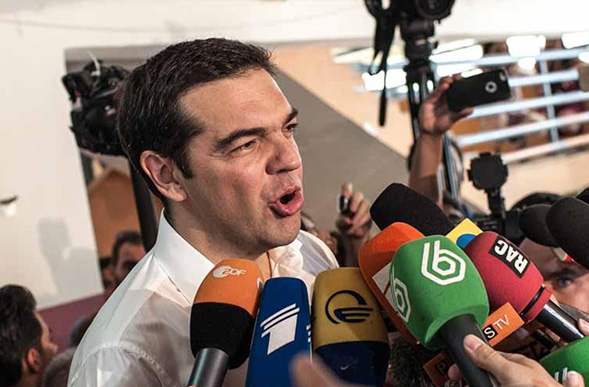tsipras_copy.jpg

Greek prime minister Alexis Tsipras. Shutterstock
The increasingly unpopular Tsipras, once a standard bearer for the radical left, reshuffled his government late on Friday in hopes of expediting bailout reforms and paving the way for a deal on debt relief with creditors by the end of the year.
Speaking after the reshuffle was announced, Tsipras said it was “time to turn the page” and forge a new start.
“[This] will give us the necessary impetus for the last critical steps of a marathon leading us to brighter days.”
The reshuffle is an attempt to hasten the pace of reforms required under Greece’s latest, €86bn ($95bn) bailout deal from Europe. He is also catering to the demands of the International Monetary Fund, which has so far refused to take part in the most recent bailout but has invested heavily in Greece’s recovery in the past.
Hardline ministers that had criticised the bailout’s remaining requirements, including privatisations and labour and fiscal reforms, have been axed or swapped out and replaced with more moderate figures.
By meeting the conditions of the bailout package, Tsipras hopes discussions on much-needed relief from its €320bn ($354bn) debt mountain before the end of the year.
He also hopes to win back access to the European Central Bank’s quantitative easing programme early next year and the bond market by 2018, when its current bailout programme expires.
In a clear signal to creditors who have chided Greece for the slow pace of privatisation, two ministers whose portfolios had previously covered some privatisations, including one who had at times openly opposed them, were given jobs elsewhere in government.
Others, who had shown more enthusiasm, were promoted. This included former chair of Greece’s privatisation agency, Stergios Pitsiorlas, now deputy economy minister.
He will serve under Dimitri Papadimitriou, a renowned economist based in the US who heads the Levy Economics Institute think-tank, who is also a new appointed to the government. Oxford-educated economics professor Euclid Tsakalotos, known for getting the job done, will remain in his post as finance minister.
Alongside further cabinet rejigging, Tsipras also established two new ministries: a stand-alone ministry for tourism, which is a key economic driver for Greece; and a ministry for migration, reflecting the country’s front line role in the Europe-wide migrant and refugee crisis.
But George Koumoutsakos, spokesman for Greece’s opposition party New Democracy, said the reshuffle changed nothing.
New Democracy has been gaining ground in Greece as a raft of unpopular austerity measures, pushed through to secure bailout funds, have started to bite.
Tsipras and his Syriza party, originally elected on a promise to stand up to Greece’s creditors and end years of painful cuts, backtracked on their campaign commitments and signed Greece up to another bailout last year amid concerns the country could be ejected from the eurozone.
The popularity of both the premier and his party has gone into freefall as they are increasingly seen to renege on their original compact with the Greek public.
Greece’s economy is expected to return to growth next year.












